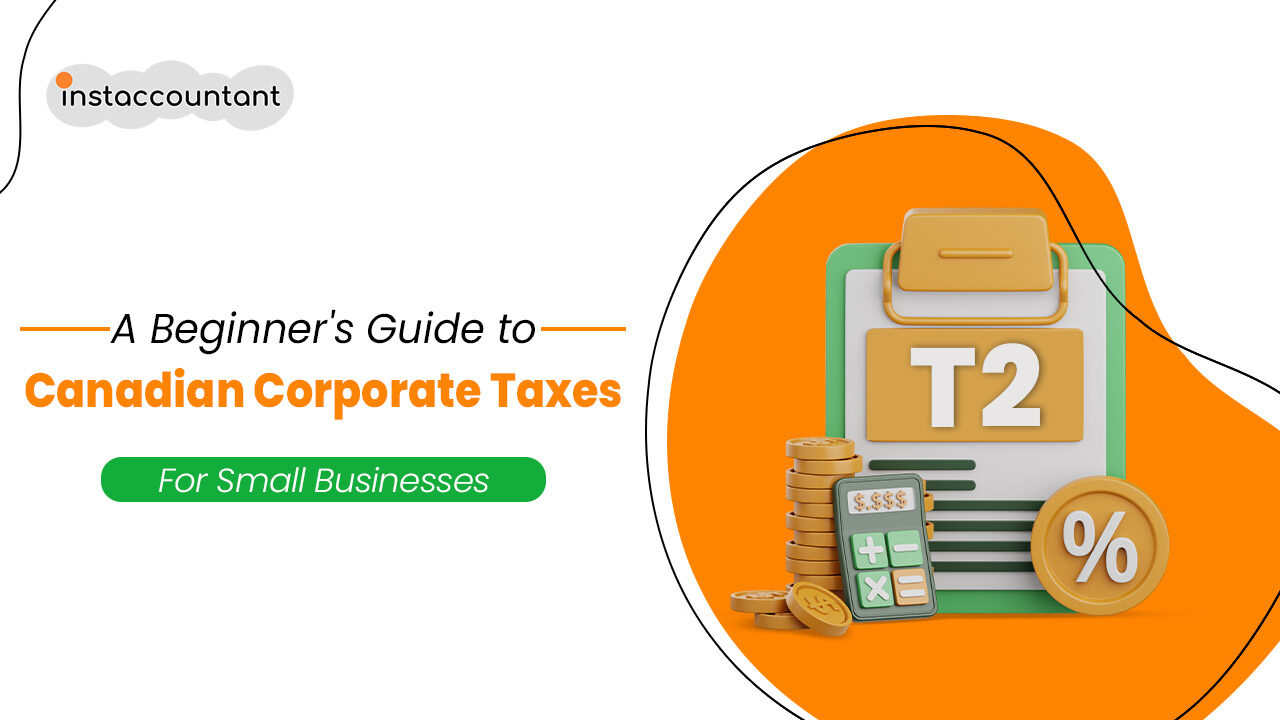Corporate taxation in Canada is a complex yet crucial aspect of running a business. Having a good understanding of the tax system can bring significant financial benefits and ensure compliance with legal obligations. Whether you’re a small business owner or considering starting a corporation, it’s important to grasp the key tax concepts. In this blog post, we will explore how corporations are taxed, the tax advantages of incorporating your business, different ways to pay yourself from your corporation, common pitfalls to avoid, and some potential disadvantages of incorporating. So, grab a cup of coffee and let’s delve into the realm of corporate taxes in Canada!
Incorporation and Corporate Taxes in Canada
When you incorporate your business in Canada, you create a separate legal entity. This means your business has its own rights, obligations, and taxes, separate from you as an individual. A significant benefit of incorporating is limited liability. If your corporation faces financial or legal issues, your personal assets (house, car, etc.) are generally protected. The Canadian Revenue Agency (CRA) recognizes different corporation types, with Canadian-Controlled Private Corporations (CCPCs) enjoying lower tax rates on active business income up to a specific limit.
Canada has a two-tiered corporate income tax system:
- Federal Corporate Tax Rate: Applied to the corporation’s taxable income. The current net rate (after federal tax reduction) for 2024 is 15% for general corporations and 9% for CCPCs claiming the small business deduction.
- Provincial/Territorial Corporate Tax Rates: Each province or territory sets its own rates. These are typically added to the federal rate to determine the overall corporate tax burden.
Small Business Deduction and Business Limits
The small business deduction is a significant benefit for Canadian-controlled private corporations (CCPCs), allowing a lower tax rate on a portion of their taxable income. The federal business limit for the small business deduction is set at $500,000, but this limit can be affected by certain situations (e.g., affiliated businesses). Consult a tax professional for specific details.
The Benefits of Incorporating in Canada
Incorporating your business in Canada offers several advantages that can contribute to its growth and financial success. Here are some key benefits to consider:
1. Lower tax rates on active business income: Small business corporations, known as Canadian Controlled Private Corporations (CCPCs), enjoy lower tax rates on their active business income. This means that more money can be retained within the business for reinvestment and expansion. By deferring tax, you have the flexibility to keep profits in the corporation and subject them to the lower corporate tax rates until you decide to withdraw the money personally, giving you more control over your tax planning.
2. Lifetime Capital Gains Exemption (LCGE): When you sell shares in your small business corporation, you may be eligible for the LCGE, which provides an exemption on a portion of the taxable gains. This can result in significant tax savings and allow you to keep more money in your pocket.
3. Taxation of Active Business Income: Active business income derived from the day-to-day operations of your business is subject to corporate tax rates, which are generally more favorable than personal tax rates. CCPCs can benefit from a reduced corporate tax rate that applies to the first $500,000 of net income, allowing for potential tax savings.
4. Taxation of Investment Income: Investment income earned by your corporation, such as interest, dividends, or capital gains, is taxed at a higher rate compared to active business income. However, a portion of the taxes paid on investment income can be refunded when the corporation distributes the income as dividends to the shareholders. This ensures tax integration and equal treatment of income.
5. Flexibility in Compensation: As a business owner, you have options for how to pay yourself from your corporation. You can take a salary, receive dividends, or a combination of both. Salaries provide a tax deduction for the corporation and allow you to contribute to retirement savings. Dividends, while not providing a tax deduction for the corporation, are taxed at a lower rate on your personal tax return due to the dividend tax credit. Choosing the right compensation method depends on your individual needs and financial goals.
6. Accessibility for Non-Residents: Almost anyone, including non-residents, can incorporate a business in Canada, provided they meet certain requirements and have at least one director who is a resident Canadian. This allows for international entrepreneurs to take advantage of the benefits of incorporating in Canada.
Disadvantages of Incorporating
While there are numerous advantages to incorporating your business, it’s important to consider the potential disadvantages:
- Increased administrative responsibilities: Incorporating a business brings additional administrative tasks, such as maintaining corporate records, holding annual meetings, and filing separate tax returns for the corporation. These responsibilities may demand more time and effort from you or require professional assistance.
- Higher costs associated with maintaining a corporation: Running a corporation typically incurs higher costs compared to operating as a sole proprietorship or partnership. These costs may include legal fees for incorporating, ongoing accounting fees, and additional compliance costs related to corporate reporting and tax filings.
- Losses that can’t help you now: In a sole proprietorship, losses can directly reduce your personal taxable income. However, in a corporation, losses can only be applied to offset future corporate tax bills, not your personal taxes. This may limit the immediate tax benefits of business losses.
- Limited flexibility in profit distribution: Incorporating your business may restrict your flexibility in distributing profits. Corporate profits are commonly distributed through salaries, bonuses, dividends, or retained earnings. Depending on your goals, this limited flexibility may impact your ability to manage personal cash flow or implement specific tax strategies.
Potential Pitfalls
When running a business as a corporation, it is crucial to avoid potential pitfalls. Inadequate tax planning can lead to unpleasant surprises. It is essential to stay on top of your tax obligations and work with a tax professional to optimize your situation.
Be aware of passive income limits. Earning too much investment income inside your corporation could result in a loss of the small business tax rate. Monitoring your corporation’s investment income is necessary to avoid this issue.
Avoid using corporate assets for personal use, as this can result in additional taxes and complications. It is essential to maintain a clear separation between personal and corporate expenses.
Tax Filing Requirements for Corporations in Canada
- Annual Tax Return (T2): All corporations, including those inactive or non-resident with Canadian activities, must file an annual T2 corporation income tax return. You have six months after your fiscal year-end to submit this return to the Canada Revenue Agency (CRA). Don’t miss the deadline, delays can result in penalties.
- Installment Payments: If your corporation’s total tax liability for the previous year was $3,000 or more (be aware, this threshold can change slightly year-to-year), you’ll need to make installment payments throughout the year to avoid a hefty tax bill at once. These payments are typically due monthly or quarterly, depending on your specific circumstances.
- Deductions and Tax Credits: Corporations can significantly reduce their taxable income by taking advantage of eligible deductions. These include common business expenses, capital cost allowance (depreciation) for assets, and even business losses carried forward from previous years. Additionally, various federal and provincial tax credits are available to help offset your tax burden. Be sure to explore options like the Scientific Research and Experimental Development (SR&ED) credit or investment tax credits that might be applicable to your business activities.
- Additional Responsibilities: As an employer, your corporation shoulders the responsibility of deducting and remitting payroll taxes, including contributions to the Canada Pension Plan (CPP), Employment Insurance (EI), and income tax from your employees’ paychecks. Additionally, if your corporation provides taxable supplies in Canada, you may need to register for and collect the Goods and Services Tax (GST) or Harmonized Sales Tax (HST), which is separate from corporate income tax and requires its own reporting procedures.
Conclusion
Incorporating your business in Canada can provide significant benefits, such as limited liability protection, lower tax rates on active business income, and the ability to strategically plan your personal income. However, it is essential to consider the potential disadvantages, such as increased administrative costs and the loss of certain personal tax credits.
Each business owner’s situation is unique, and it is recommended to consult with a tax professional before making a final decision to incorporate. Understanding how taxes work is crucial for small business owners, as it allows you to make informed financial decisions and maximize your hard-earned money.
For more detailed information, consider consulting with a tax professional or visiting the CRA’s website. Remember, tax planning is an ongoing process, and staying proactive is key to managing corporate taxes effectively.




